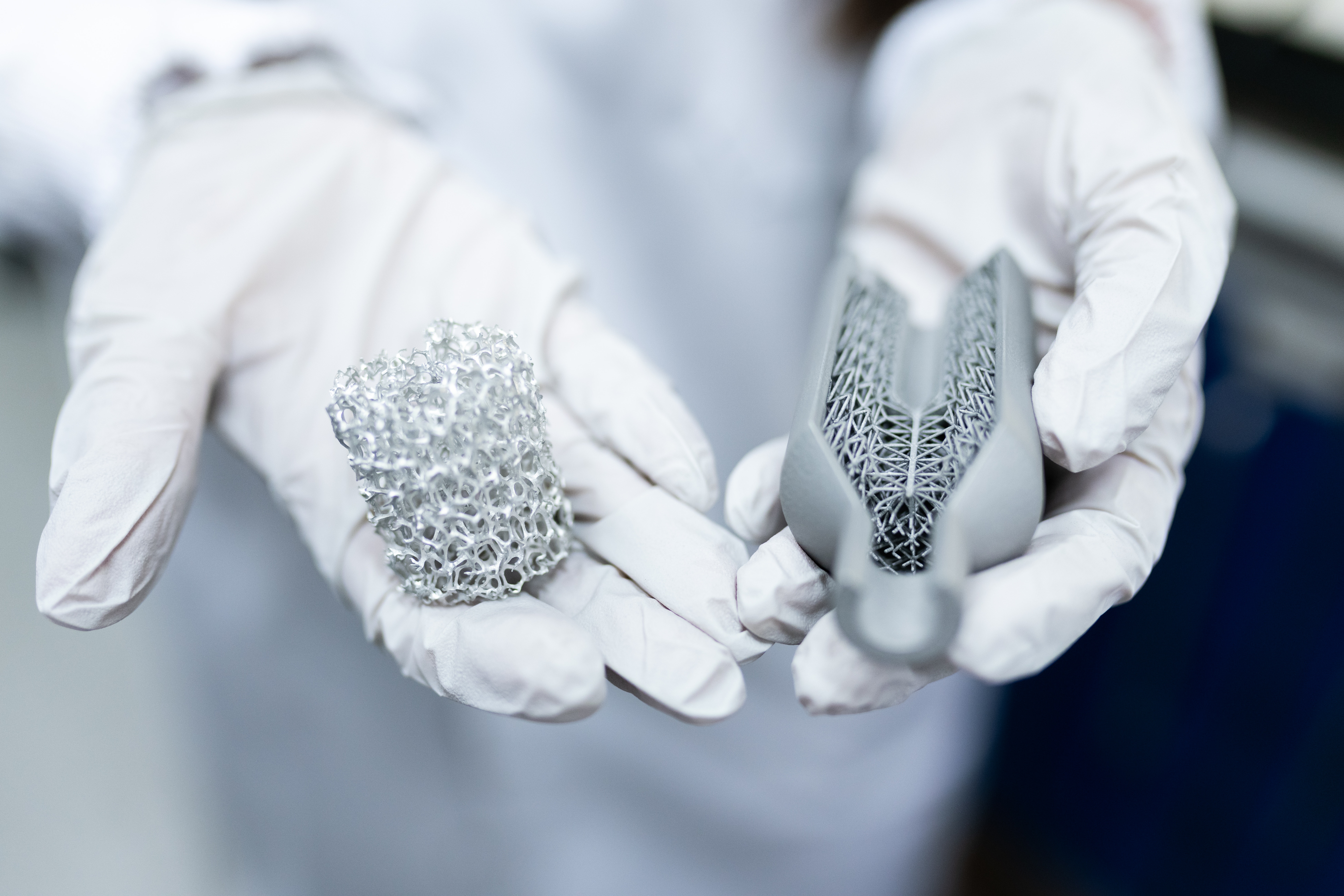
Description and project goals
Additive manufacturing processes are considered a key technology for lightweight construction. The ML-S-LeAF project focuses on layer-by-layer powder bed fusion with a laser beam on metal (PBF-LB/M, short PBF in the following). This process is suitable for application in lightweight construction because, among other things, the component design is hardly restricted and simply new possibilities are available on the way to climate-neutral manufacturing. Together with a strong consortium, Fraunhofer IDMT is developing AI-based methods for automated acoustic quality monitoring in lightweight construction, especially for additive manufacturing.
Initial situation and idea
Due to the complex melting and solidification mechanisms in PBF and the resulting defects such as porosity, the lightweight construction potential can only be exploited to a very limited extent to date. In particular, the quality requirements for lightweight construction that apply in the aerospace industry have not yet been satisfactorily met. The systems used to date for process monitoring in PBF apply optical sensors that detect the emitted radiation of the molten bath. However, smoke formation and the temperature and wavelength dependence of the radiation intensity falsify the measurement signals. For this reason, it is usually the machine operators who subjectively decide whether a process stop is necessary. They can hear deviations in the production process on the basis of noises occurring during PBF. Automated acoustic quality monitoring therefore has a great deal of potential for identifying errors while the process is still running and reacting to them accordingly at an early stage.
About the project
The project consortium has set itself the task of developing methods for automated noise evaluation in additive manufacturing, especially for lightweight construction. Equipping PBF machines with automated monitoring systems as standard, with the help of which errors in the manufacturing process can be detected at an early stage, leads among other things to a reduction in unnecessary machine operating hours and thus saves CO2 emissions.
The innovation in automated acoustic monitoring
Machine-learning (ML) algorithms must be trained with a sufficient number of fault patterns, which are often not available in practice because measuring all fault patterns is too costly or, in some cases, not even possible. As a special feature in this project, the sound data for training the ML models are not only recorded at real plants, but also simulated by a virtual model of the process. The transferability between real and simulated sound plays a crucial role in generating robust ML models. This innovative merging approach enables the generation of a significantly larger database and, if the results are promising, can be transferred to numerous other application areas. In the project, a pilot plant will be implemented to demonstrate real-world use on a plant prototype. This includes the software for quality monitoring as well as the system integration of the sensor technology and the control technology.
 Fraunhofer Institute for Digital Media Technology IDMT
Fraunhofer Institute for Digital Media Technology IDMT